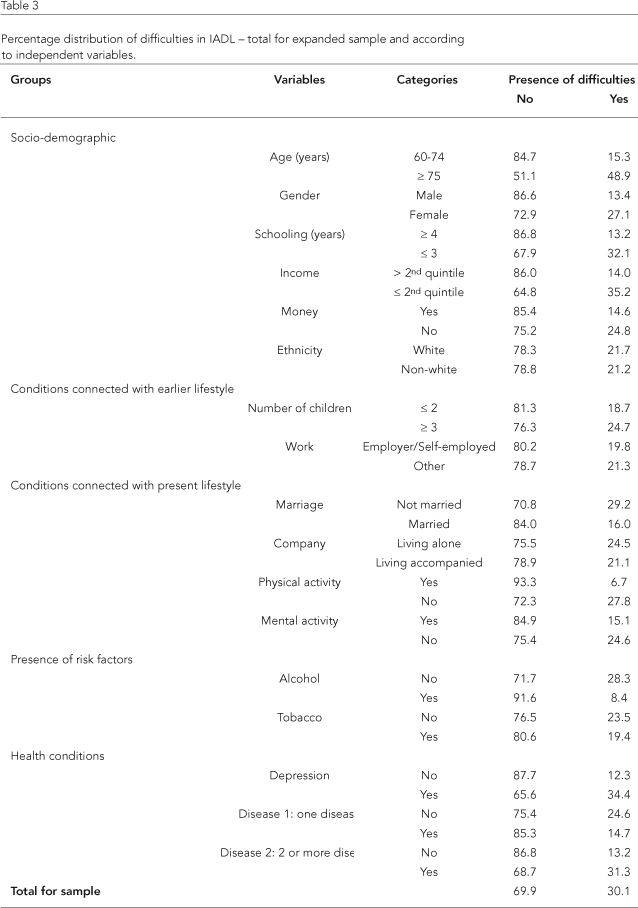The changes that occur during aging are accompanied by limitations in functional performance that impair elderly people's social participation and consequently harm their quality of life. In the SABE Study (São Paulo, Brazil), the results indicated relationships between life expectancy without disabilities and demographic and social variables. This article sought to evaluate these and other variables together as explanatory factors for the presence or absence of difficulties in instrumental activities of daily living (IADL), directly related to the possibility of more efficient community participation. Five of the eight questions relating to IADL that were applied to the sample of 2,143 elderly individuals in the municipality of São Paulo in 2000 were considered. Odds ratios were calculated using logistic regression. All the socio-demographic variables analyzed (age, income, ethnicity, schooling, and gender) were significant, with the exception of "sufficient money". All the variables in the "health" group (one or two or more diseases reported, and depression) were also significant. The two other variables that entered the model were physical activity and alcohol consumption.
Activities of Daily Living; Quality of Life; Frail Elderly; Aging




